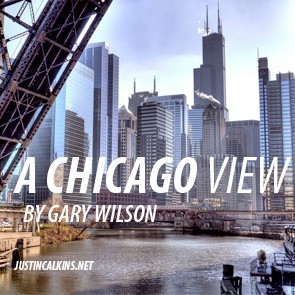
Gary Wilson
Commentary
While elected officials grapple over how to resolve their fiscal cliff differences, there’s one post-election area where the parties agree – Latino voters overwhelmingly supported President Obama and may have been the deciding factor in the election.
Potential implications for Great Lakes environmental policy are clear, especially in a city like Chicago which is the de facto capital of the region. It has the fifth largest Latino population in the country.
Various analyses put the Latino vote around 75 percent for the president. The Pew Research Center says the Latino vote is “ascendant… and likely to double by 2030.” That “ascendance” can play a prominent role in politics for the foreseeable future.
Economic, immigration and health issues are high priorities for Latino voters, no surprise there. But what about the environment, does it resonate?
“While not a typical Latino statement, the plan to create more clean energy jobs and more responsible energy development is just what the doctor ordered for Hispanics” said Maria Cardona in a CNN commentary months before the election. Cardona is a Democratic Party strategist.
Cardona says Latinos equate clean energy with a healthy community and that’s important as many of their communities are located in “polluted environs.”
A good example is Chicago’s Pilsen and Little Village communities where two old coal-fired power plants were recently closed after years of pressure from Latino activists.
The Natural Resources Defense Council and other big environmental groups supported the local activists.
Given Latinos’ emerging power, how can the environmental establishment best engage them?
“For Latinos it’s important to talk in a way that brings the issues home,” says Adrianna Quintero of the Natural Resources Defense Council. For example, Latinos are “passionate about open spaces” and are big users of parks and beaches.”
Quintero is a San Francisco attorney who directs the Council’s La Onda Verde (Green Wave) Latino  outreach program.
outreach program.
She predicts Latinos may be on the cusp of flexing their political environmental muscle. “That’s a natural next step as a healthy environment is equated with the opportunity for good personal health.”
Reassessing Latinos and the environment
Similar to defeated political parties, it’s useful for everyone involved in environmental issues to examine their perceptions of Latinos and activism. It’s easy to become locked in to stereotypes and not realize that change is happening.
I wasn’t surprised to see a “ban bottled water” statement on the website of the Latino Cultural Center at the University of Illinois’ Chicago campus. Bottled water is increasingly taboo on campuses around the country.
What did surprise me was the way the issue was framed. The Latino organization saw bottled water as a human rights and water privatization issue. “Access to clean drinking water is a fundamental human right” the site said. It also asked for help to “de-privatize water and contribute to a greener campus and city.”
That’s a far more progressive position on bottled water and privatization than any expressed by the big Great Lakes advocacy groups. Bottled water isn’t on their radar and they even allowed its export to be codified in the Great Lakes Compact.
Why the strong anti-privatization stance by Latinos?
It doesn’t sit well with multiple Latino generations who have seen the negative consequences of privatization in their native countries. And Mexican immigrants come from a country where water is publicly controlled.

Latinos see bottle water as a human rights issue.
It’s also interesting to note that in Chicago’s last mayoral election the leading Latino candidate campaigned to maintain public control of Chicago’s water system. Privatization of city services was an issue in the election.
Back to the NRDC’s Quintero.
In addition to water privatization, she believes Latinos may also be ahead of the curve when it comes to recognizing and accepting climate change. It’s a “big issue as they see the vulnerability of Latin American countries to global warming and want to know how it will impact them,” Quintero said.
As their political power ascends, will Latinos play an increasing role in protecting the environment? Quintero’s optimism may be warranted but it’s too soon to tell.
But if I were leading an environmental organization that wanted greater participation from Latinos I’d be cognizant of the following:
- Sweeping programs that don’t impact their local problems may not be of value. Restoring a wetland or removing a dam is great but how can an urban Latino connect?
- Latinos have had a different experience with control of water. Groups who turn a blind eye towards water privatization — think public- private partnerships — may want to engage on the issue.
- Find a way to integrate your priorities with those of the Latino community. Learn from their experiences. They’re more likely to have been exposed to environmental injustice than a career policy advocate.
All of us — citizen advocates, environmental groups and politicians — should pay attention to the emerging Voces Verdes.
My brief research tells me that taking care of the environment isn’t a cause du jour for Latinos. Desire for a healthy environment is woven into the fabric of their culture.
There is value for everyone in understanding their environmental perspective and we should welcome their ascendance.
